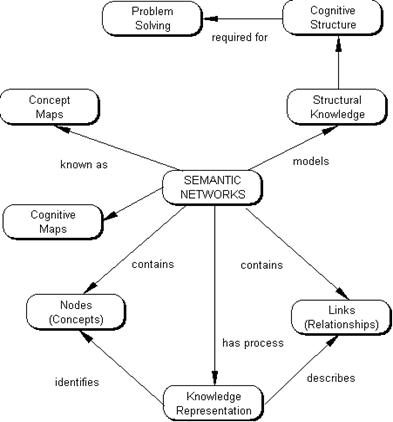1) Teach Memorization: How to memorize and what to memorize
2) Develop Your Kids auditory skills
3) Image vs. Word- what does it matter what we focus on?
Because the question originated on the K- 6th grade boards I suggested that the parent incorporate memory work into their homeshcool and train their children's auditory skills. The originator of the question responded with enthusiasm, stating that her young child could memorize way better than she could. That's because young kids (pre-K through 6th grade) are in the grammar stage (based on the classical model of education). Grammar stage kids are neurologically hardwired to memorize. They are memory sponges. Give them something worthy to memorize or you will be listening to them sing the theme song of Sponge Bob Square Pants from the back seat of the car. I've read an whole lot about education and one thing that makes me laugh over and over again is the comment that goes something like this; "American school kids spend so much time memorizing for the test that they don't have time for anything else." Oh, how I want to break out into peals of laughter over that one.
There is a huge qualitative difference between short term memory based on performance and long term memory based on learning. In fact, without memory, it's hard to know if learning has really taken place. I've discussed the difference before between overview and memory and the "memory" that these articles refers to is more clearly defined as simply "overview." At the end of the day, when the test is over, the kids don't remember what they "know." The reason? They didn't know it in the first place because it wasn't stored in their long-term memory. Knowing involves ownership. If I know how to read- really read with fluency and comprehension, I have to KNOW the letter sounds. I have to know them so well that that knowledge comes to me without even think about them, in a blink of the eye, (for a really great discussion of this, check out Gladwell's "Blink"). I have to know how to manipulate them (for instance, "g" followed by "i" or "e" makes a soft "g" sound and when followed by the other consonants makes a hard "g" sound.) If I don't KNOW the letter sounds, and how to manipulate them, then I am fumbling, bumbling around trying to figure and getting frustrated because the word "gem" only makes sense in my sentence about precious jewels if I pronounce it correctly as "jem" not "ghem".
In other words, real learning is taking place when the information stored in the long term memory of the person owning it. Otherwise it's just overview and something the person has to look around for to find again.
The Memory Work that I am talking about is knowledge stored in the child's brain. The kid knows that they know it. "Teaching" how to memorize, like teaching reading, is teaching how to learn and requires commitment and hard work. Time line cards, facts, people, places, are not stored overnight and require repetition and mnemonic devices, (a mnemonic device is a way to create "hooks" in the brain to store and retrieve information; for instance, Taxonomy is often memorized by learning the sentence, "King (Kingdom),Philip (Phylum), Cried (Class), Out (Order), For (Family), Goodness (Genus), Sake (Species)!" There are many mnemonic devices to use, flash cards, disappearing sentences, set the information to song, and they are worth teaching your students about. Fill their learning toolbox with quality tools!
The resources that we use the most as far as what to memorize are Living Memory, by Dr. Andrew Campbell, author of The Latin Centered Curriculum, (available through LuLu), The Well Trained Mind by Susan Wise Bauer (Peace Hill Press), Classical Conversations CD and Foundations Guide, by Leigh Bortiens, (Classical Conversations), various Memoria Press publications and IEW's Language Acquisition Through Poetry Memorization, by Andrew Pudewa (Institute for Excellence in Education), drama, presentations, songs.
Normally I base what to memorize on 2 things. The history cycle that we are in for the year and what spines we are using for the year. The Well Trained Mind has, by subject, list of things to memorize, and Living Memory does as well.
Whenever I can find resources accompanied to music, I grab it. Music is a wonderful mnemonic and I try to make use of it whenever I can.Next up: Training your kids to be auditory learners.
I'd love to hear your thoughts on the importance of memory work, what mnemonics you use and what you memorize.



4 comments:
One thing that continually surprises me is how much easier memorization is for my ds5 than it is for dd10. It's always been more difficult for her, but I can see it becoming harder as she gets older.
A side benefit to memory work is that I have (inadvertently!) memorized some pieces that I don't know I would have otherwise put the effort into learning - In Flanders Fields, The Charge of the Light Brigade, The Gettysburg Address, an excerpt from "I Have a Dream" - and even dh has picked up some of them.
We use many of the same resources as you. I do try to pull things from what they are learning in history, science, and foreign language. In theory, I'd love to have them memorize things relating to fine arts, but I haven't figured that out quite yet.
I learned of classical education fairly late in my girls education (5th, 6th, 7th grades) and grammar/memorization window was nearly closed. However, I have seen the incredible results of this method in some friends who were able to start their children in classical method from the beginning.
My own girls, by watching the results of the other children, have seen the value of memorization at early ages for making connections later. They are convinced of it's merits, so maybe the next generation will reap the fullest benefits.
Great post, LL.
Fabulous! Happily we have the same resources so I'm making some serious notes here!!!!
Thank you!
-Kathy
Thank you for posting this and for your elaboration. I was the original poster on that thread. It's so nice to learn from those who have been there before.
Post a Comment